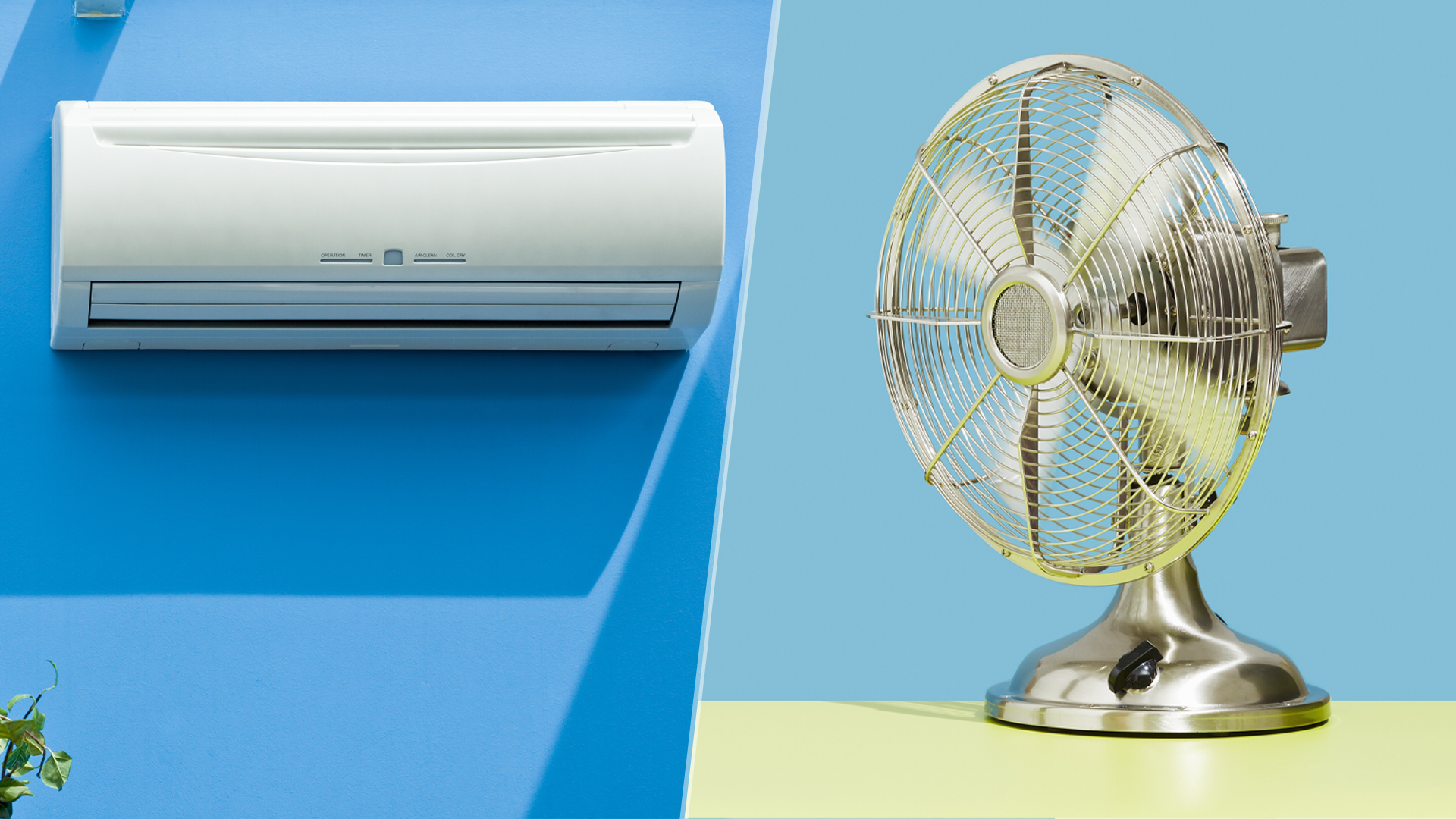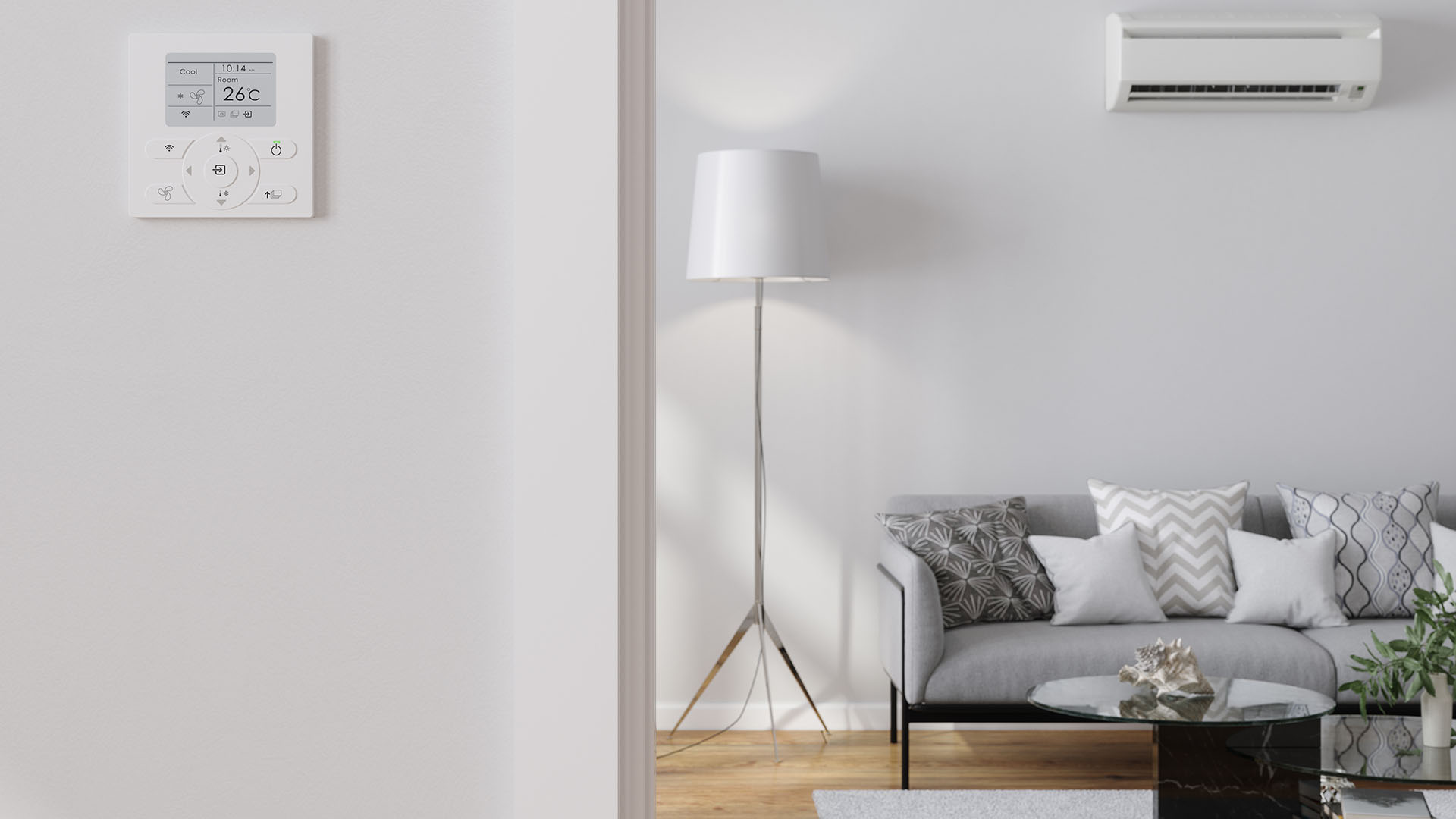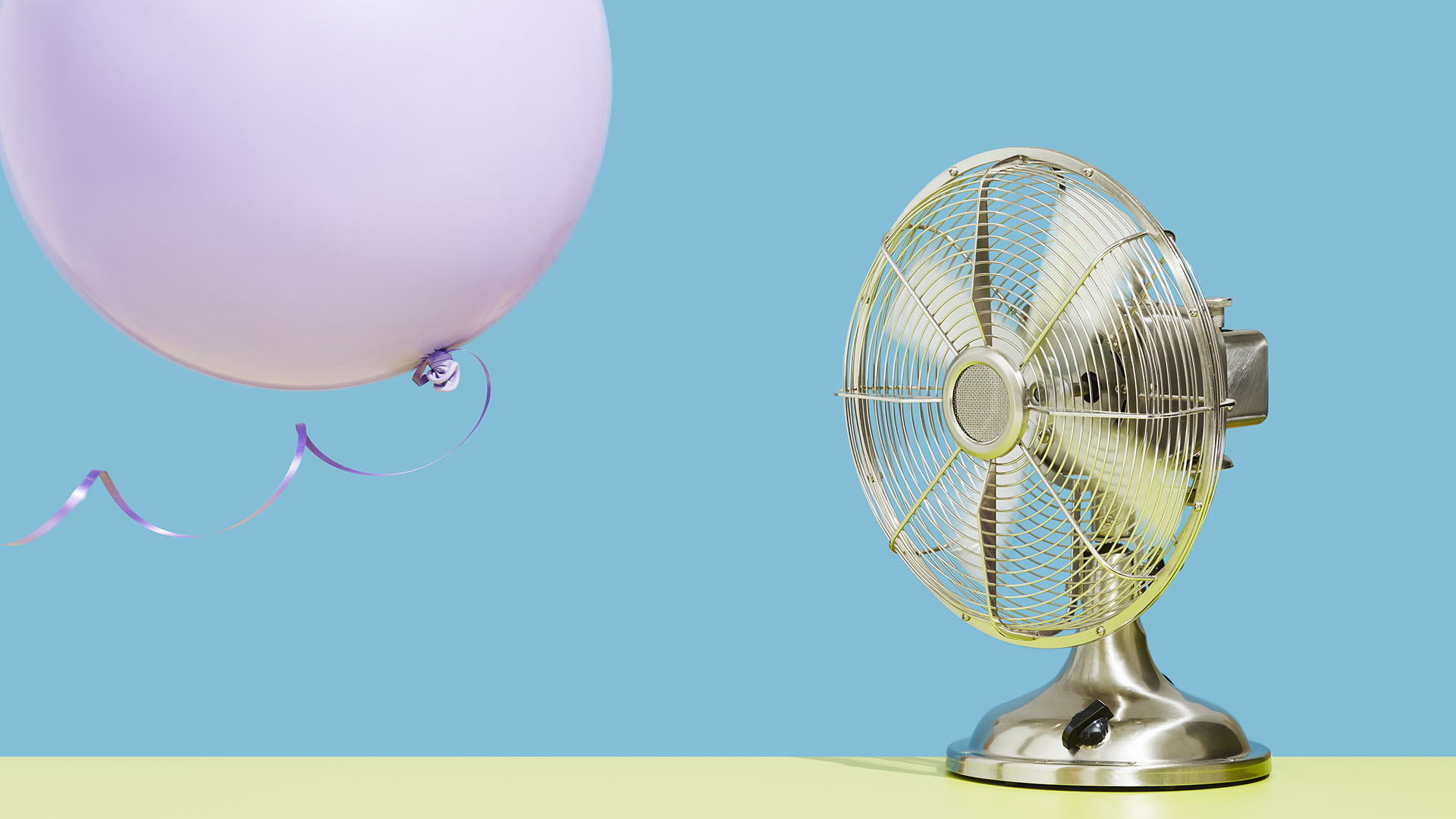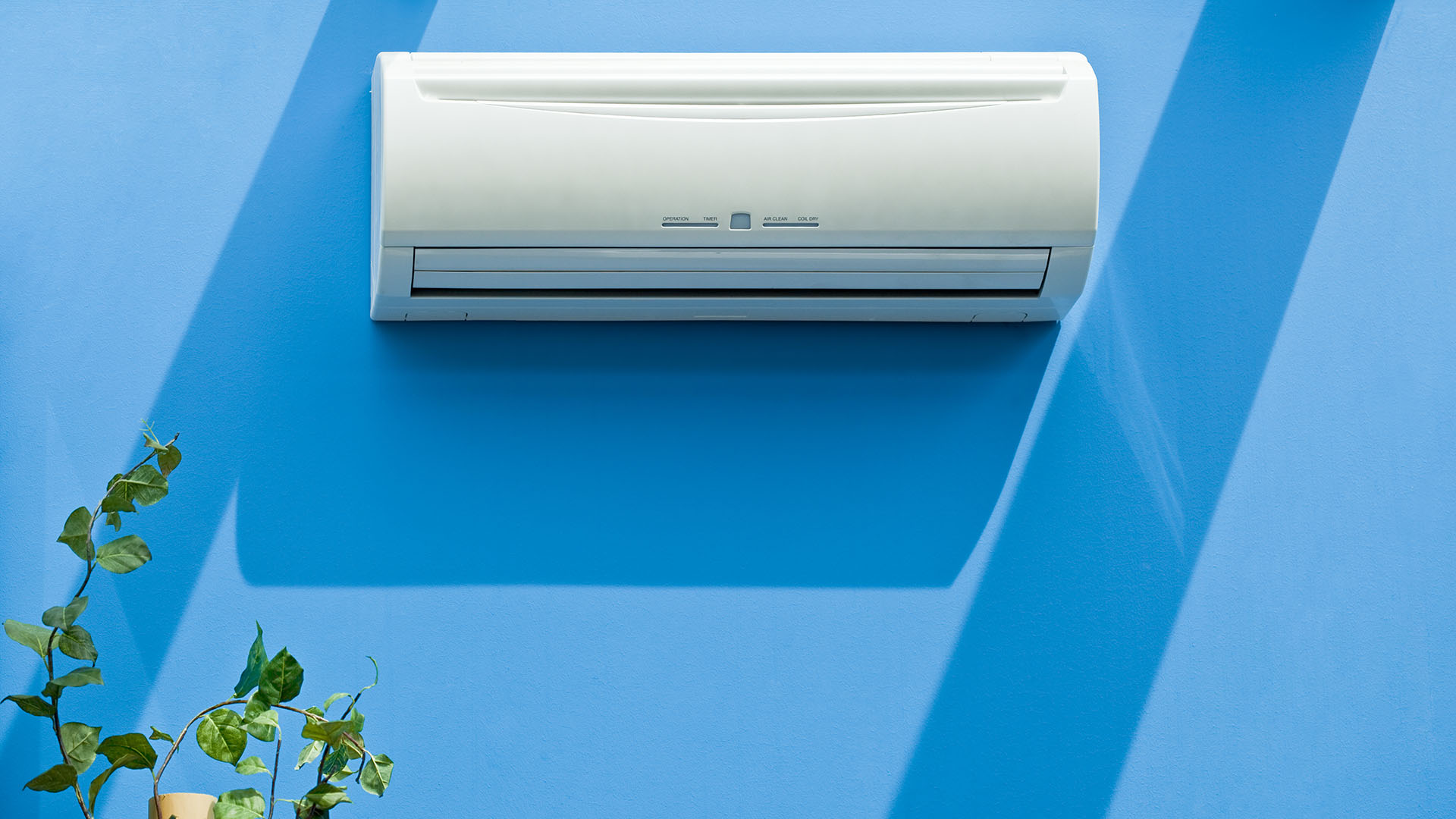
The temperature's rising, you're starting to sweat, and wondering whether to buy one of the best fans or an air conditioner to keep cool. And it's not a silly question. While both devices are designed to keep you cool, they operate in fundamentally different ways and come with their own sets of advantages and disadvantages.
In this article, I'll explore the key differences between fans and air conditioners, to help you make an informed decision about which one is right for your home.
Fan vs air conditioner: how do they work?
Fans come in various types, including ceiling fans, table fans, pedestal fans and tower fans. Each of these is designed for different spaces and uses, but all of them operate on a simple principle: they circulate air in a room, creating a wind-chill effect.
This means that, contrary to what you might feel, a fan doesn't actually lower the air temperature. Instead, the moving air increases the rate of sweat evaporation on your skin, making you cooler, but not the room. (For more on this, see our article Can fans cool a room?).

Air conditioners, on the other hand, actively cool the air using a more complex process. The simple version is that they remove heat and humidity from indoor air and expel it outside of the building through a refrigeration cycle. This results in a tangible drop in room temperature.
There are four main types. Built-in air conditioners, also known as central air conditioning systems or split systems, are permanently installed in a home. Split systems consist of an outdoor compressor unit and one or more indoor air-handling units. Window air conditioners are single units that are installed in a window or through a wall. Finally, portable air conditioners are freestanding units that can be moved from room to room.
Fan vs air conditioner: energy consumption and cost
As you might expect, fans are generally much more energy-efficient, using significantly less electricity compared to air conditioners. For instance, a ceiling fan typically consumes about the same amount of energy as a 100-watt light bulb. This makes them much cheaper to run.
Air conditioners, in turn, consume far more electricity. Some estimates suggest that air conditioners use up to 100 times more energy than fans.

It's worth noting that modern air conditioners are becoming more energy-efficient, with options like inverter technology, which adjusts cooling output to save energy. But even so, you're going to run up significantly higher electricity bills compared to a fan, especially in peak summer months.
Remember, too, that fans are much cheaper to buy in the first place, and require minimal upkeep beyond occasional cleaning (see our guide to How to clean a fan). Air conditioners, on the other hand, have a higher upfront cost and can be expensive to install. They also require regular maintenance, such as cleaning or replacing filters and checking refrigerant levels, which adds to the overall cost.
Fan vs air conditioner: performance
Possibly the most important question in the fan vs air con debate is 'which one is better at keeping you cool?' There's no doubt about it: air conditioners are much better at providing consistent and controllable cooling.
Unlike a fan, an air conditioner can actually lower the temperature of a room to a desired level and maintain it, which is particularly useful in hot climates or during heatwaves. Air conditioners also reduce humidity, creating a more comfortable environment overall.
There are, however, some people who find air conditioners quite uncomfortable. That may be because they blast air in a particular direction, making a specific spot unbearably cold; most of us have experienced this in an office or restaurant, for example.

Air conditioners can worsen conditions such as asthma, allergies, and other respiratory troubles. In shared office spaces, this can lead to the phenomenon of 'sick building syndrome', involving headaches, dry cough, dizziness and nausea. Other issues, such as dry eyes and skin, can be caused by the way air conditioners suck moisture out of the air.
Fans, in turn, can be very effective at cooling you when used at close range. Unfortunately, they will not provide adequate cooling in very hot or humid conditions. Indeed, the Centers for Disease Control and Prevention (CDC) recommends using them only when temperatures are below 90F (32C).
Above this temperature, fans can actually increase the risk of heat-related illnesses by speeding up the rate of dehydration and electrolyte imbalance. On the other hand, fans can still be sufficient at keeping you cool in moderate climates.
Fan vs air conditioner: environmental impact
From an environmental perspective, fans have a much smaller carbon footprint due to their lower energy consumption. Air conditioners, in contrast, make a far bigger contribution to greenhouse gas emissions.
Additionally, the refrigerants used in air conditioners can be harmful to the environment if not properly managed, although advancements in technology are leading to more environmentally friendly refrigerants.
As well as damaging the global environment, they also cause problems in the local environment. The hotter air expelled by these units has to go somewhere, and if everyone in the block is using them, that's going to make the ambient temperature outside much more unbearable.
For instance, a 2020 study found that waste heat generated by a city’s worth of air conditioners during a heatwave can raise the outside temperature by more than 2 degrees Celsius. Ironically, this just encourages more people to install air conditioners, so they can cool down after coming inside, creating a vicious circle.
Fan pros and cons
| Pros | Cons |
|---|---|
| Energy-efficient | Don't cool the air |
| Cheaper to buy and to run | Don't dehumidify the air |
| Portable | Not effective in high temperatures |
| No installation needed | Limited range |
Air conditioner pros and cons
| Pros | Cons |
|---|---|
| Cool the air | Expensive to buy and run |
| Dehumidify the air | Can be tricky to install |
| Effective in large spaces | Difficult to direct |
| Control the room's temperature | Can cause irritation and allergies |
| Row 4 - Cell 0 | Can dry out the air |
Fan vs air con: how to choose
Ultimately, your choice between a fan and an air conditioner depends on several factors:
1. Climate: If you live in a hot, humid climate, an air conditioner is more likely to keep you cool. For moderate climates with occasional heat, however, a fan may be perfectly sufficient.
2. Budget: Fans are much more budget-friendly than air conditioners, which are expensive to buy, maintain and run.
3. Space: In smaller rooms, fans are ideal for spot cooling, while air conditioners are more effective at cooling in larger areas.
4. Environmental responsibility: Fans are hands-down the more eco-friendly choice, because they consume less energy, they don't use harmful refrigerants and they don't heat up the outside.
If you live in a moderate climate, you're better off just using a fan for economic and environmental reasons. If you live in a hot, humid climate, that may not be sufficient to keep you cool. However, even if you do opt for an air conditioner, it's worth using a fan instead when it's not so hot, and using the two in combination when it is (allowing you to get the same cooling effect from a lower setting). That way, the extra cost of buying a fan will more than pay for itself, through reduced energy bills.
Get daily insight, inspiration and deals in your inbox
Sign up for breaking news, reviews, opinion, top tech deals, and more.
Tom May is a freelance writer and editor specialising in tech, design and sleep products. Over the years he's tested a number of mattresses, duvets and pillows, and as a back pain sufferer, has a keen interest in finding ones that offer maximum support. Plus, in running a successful Airbnb business, sleep hygiene and providing the right bedding for guests has become a big part of his day-to-day life. He is author of Great TED Talks: Creativity, published by Pavilion Books.
